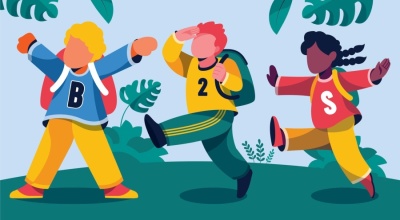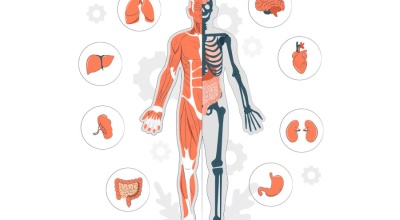Venus Williams has won four Olympic gold medals. A former world No. 1, Williams is generally credited with ushering in a new era of power and athleticism on the women's professional tennis tour. Williams has been ranked world No. 1 by the Women's Tennis Association on three occasions, for a total of 11 weeks. She first reached the No. 1 ranking on February 25, 2002, the first African American woman to do so in the Open Era, and the second all time.
| Country (sports) | |||||||||||||||||||
|---|---|---|---|---|---|---|---|---|---|---|---|---|---|---|---|---|---|---|---|
| Residence | Palm Beach Gardens, Florida, U.S. | ||||||||||||||||||
| Born | June 17, 1980 (age 39) Lynwood, California, U.S. |
||||||||||||||||||
| Height | 6 ft 1 in (1.85 m) | ||||||||||||||||||
| Turned pro | October 31, 1994 (aged 14) | ||||||||||||||||||
| Plays | Right-handed (two-handed backhand) | ||||||||||||||||||
| Coach | Richard Williams Oracene Price David Witt (2007–2018) |
||||||||||||||||||
| Prize money | US $41,736,538 (As of October 14, 2019)
|
||||||||||||||||||
| Official website | venuswilliams.com | ||||||||||||||||||
| Singles | |||||||||||||||||||
| Career record | 811–248 (76.6%) | ||||||||||||||||||
| Career titles | 49 WTA, 0 ITF | ||||||||||||||||||
| Highest ranking | No. 1 (February 25, 2002) | ||||||||||||||||||
| Current ranking | No. 53 (October 21, 2019) | ||||||||||||||||||
| Grand Slam Singles results | |||||||||||||||||||
| Australian Open | F (2003, 2017) | ||||||||||||||||||
| French Open | F (2002) | ||||||||||||||||||
| Wimbledon | W (2000, 2001, 2005, 2007, 2008) | ||||||||||||||||||
| US Open | W (2000, 2001) | ||||||||||||||||||
| Other tournaments | |||||||||||||||||||
| Grand Slam Cup | W (1998) | ||||||||||||||||||
| Tour Finals | W (2008) | ||||||||||||||||||
| Doubles | |||||||||||||||||||
| Career record | 185–36 (83.7%) | ||||||||||||||||||
| Career titles | 22 WTA, 0 ITF | ||||||||||||||||||
| Highest ranking | No. 1 (June 7, 2010) | ||||||||||||||||||
| Grand Slam Doubles results | |||||||||||||||||||
| Australian Open | W (2001, 2003, 2009, 2010) | ||||||||||||||||||
| French Open | W (1999, 2010) | ||||||||||||||||||
| Wimbledon | W (2000, 2002, 2008, 2009, 2012, 2016) | ||||||||||||||||||
| US Open | W (1999, 2009) | ||||||||||||||||||
| Other doubles tournaments | |||||||||||||||||||
| Tour Finals | SF (2009) | ||||||||||||||||||
| Mixed doubles | |||||||||||||||||||
| Career record | 28–7 (80.0%) | ||||||||||||||||||
| Career titles | 2 | ||||||||||||||||||
| Grand Slam Mixed Doubles results | |||||||||||||||||||
| Australian Open | W (1998) | ||||||||||||||||||
| French Open | W (1998) | ||||||||||||||||||
| Wimbledon | F (2006) | ||||||||||||||||||
| US Open | QF (1998) | ||||||||||||||||||
| Other mixed doubles tournaments | |||||||||||||||||||
| Team competitions | |||||||||||||||||||
| Fed Cup | W (1999), Record 21–4 | ||||||||||||||||||
| Hopman Cup | RR (2013) | ||||||||||||||||||
|
| |||||||||||||||||||
| Last updated on: October 21, 2019. | |||||||||||||||||||
Williams' seven Grand Slam singles titles are tied for 12th on the all-time list, and 8th on the Open Era list, more than any other active female player except her sister.
Despite years of protesting by tennis pioneer Billie Jean King and others, in 2005 the French Open and Wimbledon still refused to pay women's and men's players equally through all rounds. In 2005, Williams met with officials from both tournaments, arguing that female tennis players should be paid as much as male tennis players. Although WTA tour President Larry Scott commented that she left "a very meaningful impression", Williams's demands were rejected.
The turning point was an essay published in The Times on the eve of Wimbledon in 2006. In it, Williams accused Wimbledon of being on the "wrong side of history", writing:
Fight for Women's Equality - The Times essay
I feel so strongly that Wimbledon's stance devalues the principle of meritocracy and diminishes the years of hard work that women on the tour have put into becoming professional tennis players.
I believe that athletes – especially female athletes in the world's leading sport for women – should serve as role models. The message I like to convey to women and girls across the globe is that there is no glass ceiling. My fear is that Wimbledon is loudly and clearly sending the opposite message....
Wimbledon has argued that women's tennis is worth less for a variety of reasons; it says, for example, that because men play a best of five sets game, they work harder for their prize money.
This argument just doesn’t make sense; first of all, women players would be happy to play five sets matches in grand slam tournaments....
Secondly, tennis is unique in the world of professional sports. No other sport has men and women competing for a grand slam championship on the same stage, at the same time. So, in the eyes of the general public the men's and women's games have the same value.
Third, ... we enjoy huge and equal celebrity and are paid for the value we deliver to broadcasters and spectators, not the amount of time we spend on the stage. And, for the record, the ladies’ final at Wimbledon in 2005 lasted 45 minutes longer than the men's...
Wimbledon has justified treating women as second class because we do more for the tournament. The argument goes that the top women – who are more likely also to play doubles matches than their male peers – earn more than the top men if you count singles, doubles and mixed doubles prize money. So, the more we support the tournament, the more unequally we should be treated! But doubles and mixed doubles are separate events from the singles competition. Is Wimbledon suggesting that, if the top women withdrew from the doubles events, that then we would deserve equal prize money in singles? And how then does the All England Club explain why the pot of women's doubles prize money is nearly £130,000 smaller than the men's doubles prize money?
I intend to keep doing everything I can until Billie Jean's original dream of equality is made real. It's a shame that the name of the greatest tournament in tennis, an event that should be a positive symbol for the sport, is tarnished.
In response, British Prime Minister Tony Blair and members of Parliament publicly endorsed Williams's arguments. Later that year, the Women's Tennis Association and UNESCO teamed for a campaign to promote gender equality in sports, asking Williams to lead the campaign. Under enormous pressure, Wimbledon announced in February 2007 that it would award equal prize money to all competitors in all rounds, and the French Open followed suit a day later. In the aftermath, the Chicago Sun-Times cited Williams as "the single factor" that "changed the minds of the boys" and a leader whose "willingness to take a public stand separates her not only from most of her female peers, but also from our most celebrated male athletes." Williams herself commented, "Somewhere in the world a little girl is dreaming of holding a giant trophy in her hands and being viewed as an equal to boys who have similar dreams."
Williams herself became the first woman to benefit from the equalization of prize money at Wimbledon, as she won the 2007 tournament and was awarded the same amount as the male winner Roger Federer. Williams's fight for equality was documented in Nine for IX, Venus Vs. It premiered on July 2, 2013.
Somewhere in the world a little girl is dreaming of holding a giant trophy in her hands and being viewed as an equal to boys who have similar dreams.
Venus Williams
In June 2009, Williams was named 77th in the Top 100 Most Powerful Celebrities compiled by Forbes magazine
In 2004 and 2005, Serena and her sister, Venus, visited hospitals and played several tennis matches in predominantly black cities in order to raise money for the local Ronald McDonald House charities. An ESPN episode was dedicated to the Williams sisters' charity tour.
In 2005 Tennis Magazine ranked her as the 25th-best player in 40 years.
In June 2011, she was named one of the "30 Legends of Women's Tennis: Past, Present and Future" by Time
In March 2012, Tennis Channel aired a television series "100 greatest tennis players of all time", where she was ranked as 22nd. During the programme Williams was complimented by rival Lindsay Davenport, with Davenport saying 'Venus had more power than any other player on tour'.



























